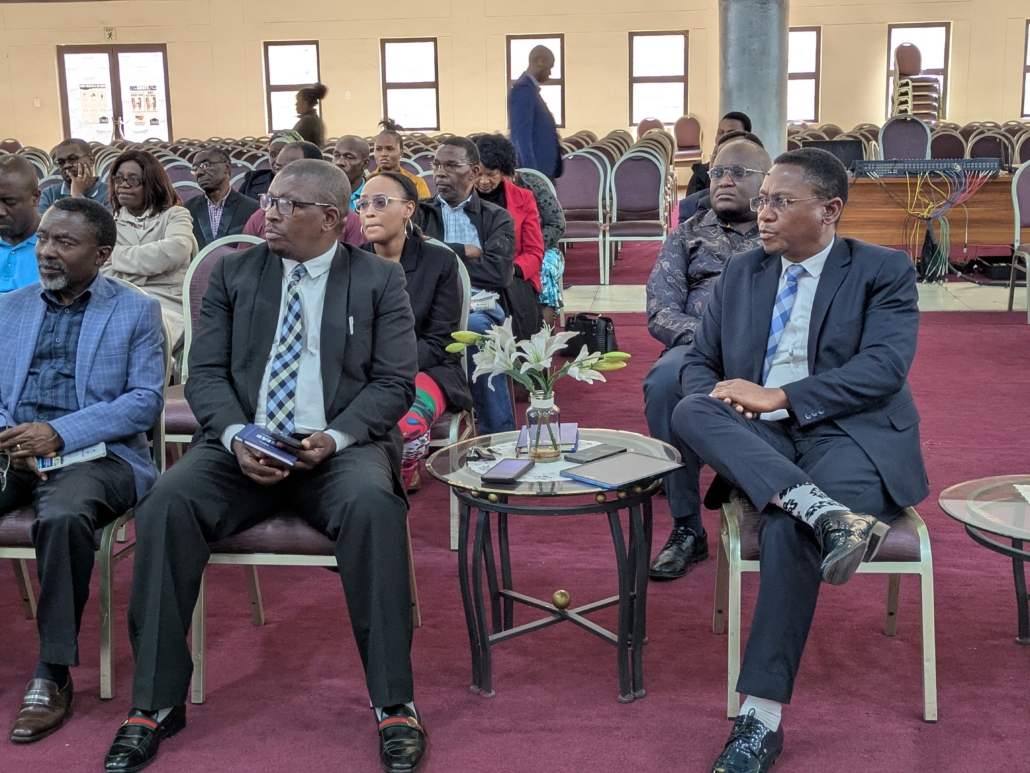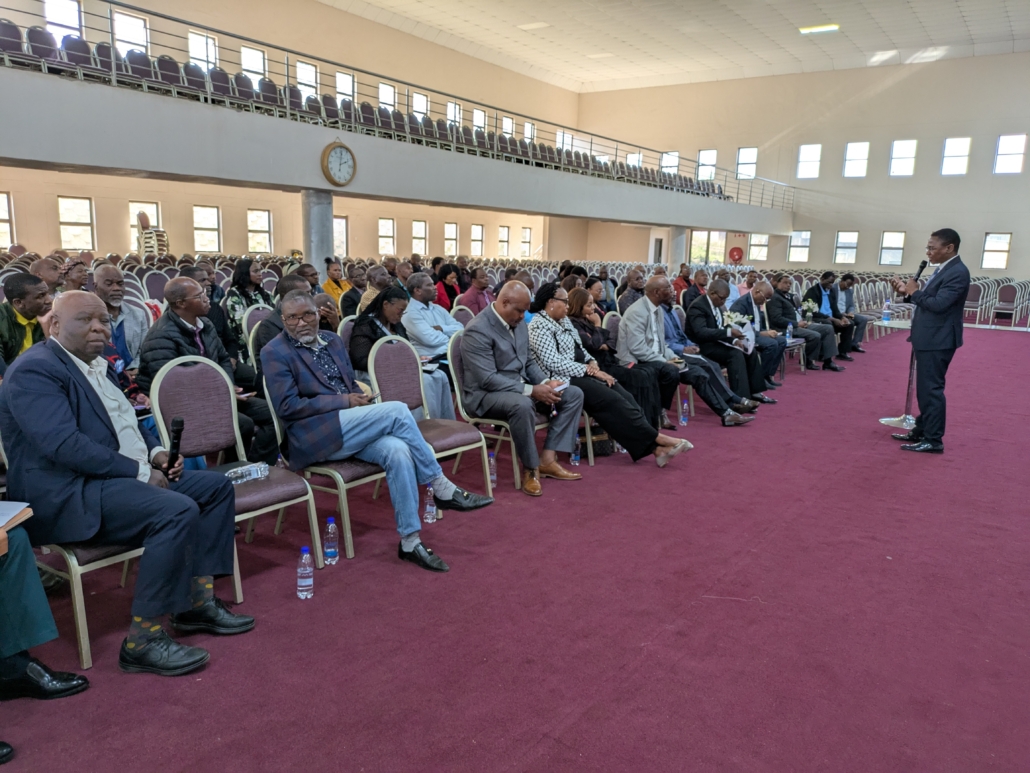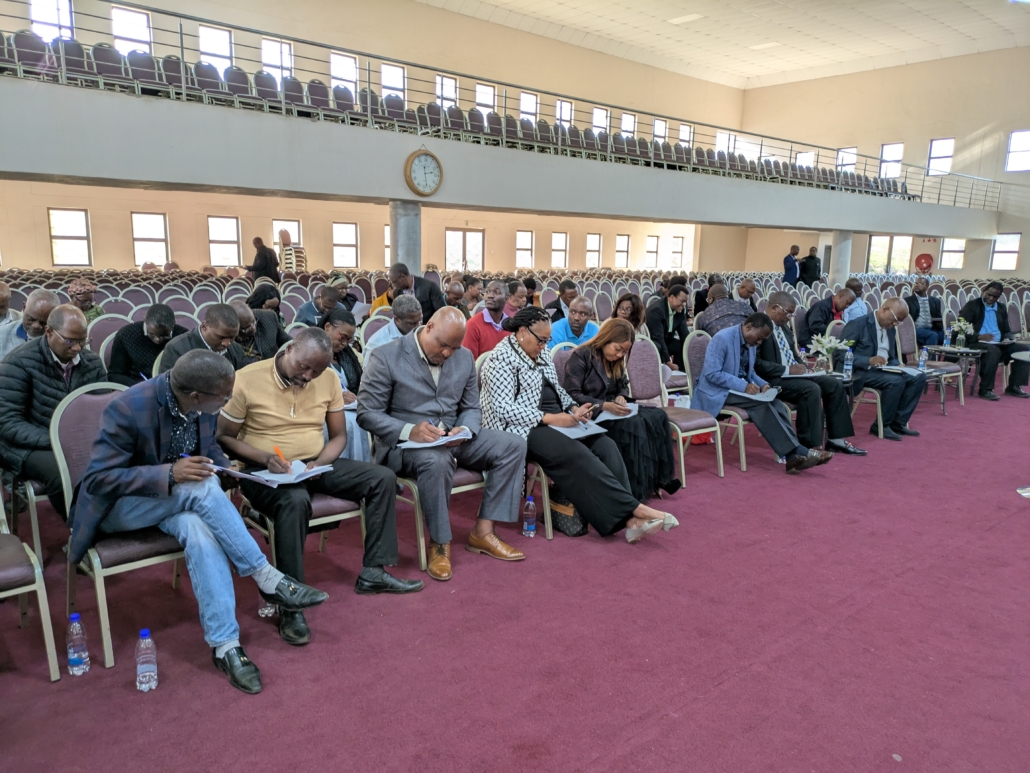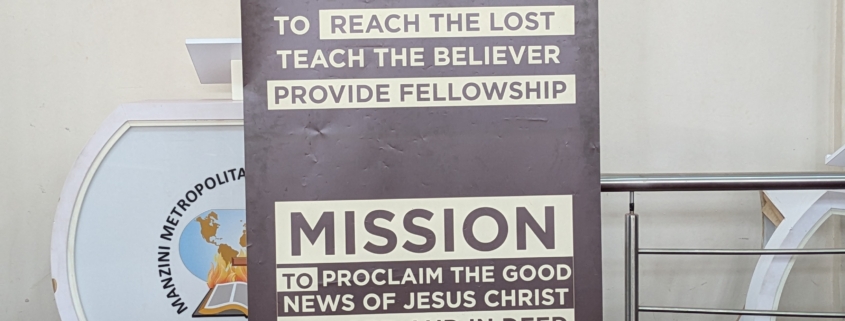Strengthening Pastoral Training in Africa: AEA Conducts Strategic Data Collection in Eswatini
On Thursday, 26 June 2025, the Association of Evangelicals in Africa (AEA) conducted a key data collection exercise in Manzini, Eswatini, as part of its landmark Theological Scaling Up project. The event, hosted at Manzini Metropolitan Evangelical Church, brought together religious leaders from across the country for a strategic consultation led by AEA Secretary General, Dr. Master Matlhaope.
This is a major milestone in AEA’s plan to train one million pastors and religious leaders across Africa over the next ten years through a non-formal theological education model. The Theological Scaling Up project aims to equip grassroots pastors—many of whom have little to no formal theological training—with contextually relevant, biblically grounded and practically applicable training that strengthens their ministry and deepens the theological foundations of the African church.

In his address, Dr. Matlhaope gave an overview of AEA’s mission to unite, represent and strengthen evangelical churches across the continent. He said the project responds to a deep need among African churches for accessible, high quality theological formation that speaks to the realities of ministry in diverse and often under-resourced contexts.
The data collection process in Eswatini focused on gathering information from local church leaders about their training needs, existing resources and ministry challenges. This will directly inform the design and implementation of the training curriculum so that it is shaped by the lived realities of African pastors and not imposed from external frameworks.
The data collection was made possible through the partnership and hospitality of the Swaziland Conference of Churches (SCC), the national evangelical alliance affiliated with AEA. SCC General Secretary Rev. Themba Sipho Ngozo and the SCC President welcomed the AEA delegation and emphasized the importance of the project for the growth and maturity of the church in Eswatini. They were instrumental in mobilizing pastors for the exercise and ensuring the data collection process was inclusive and representative.


Eswatini is one of several pilot countries participating in this foundational stage of the project. As the data collection continues across the continent, AEA remains committed to listening first—ensuring that the theological training delivered is not only theologically sound but also pastorally relevant and culturally grounded.
The outcomes from Eswatini will feed into the development of a transformative theological education model—designed in Africa, for Africa.



